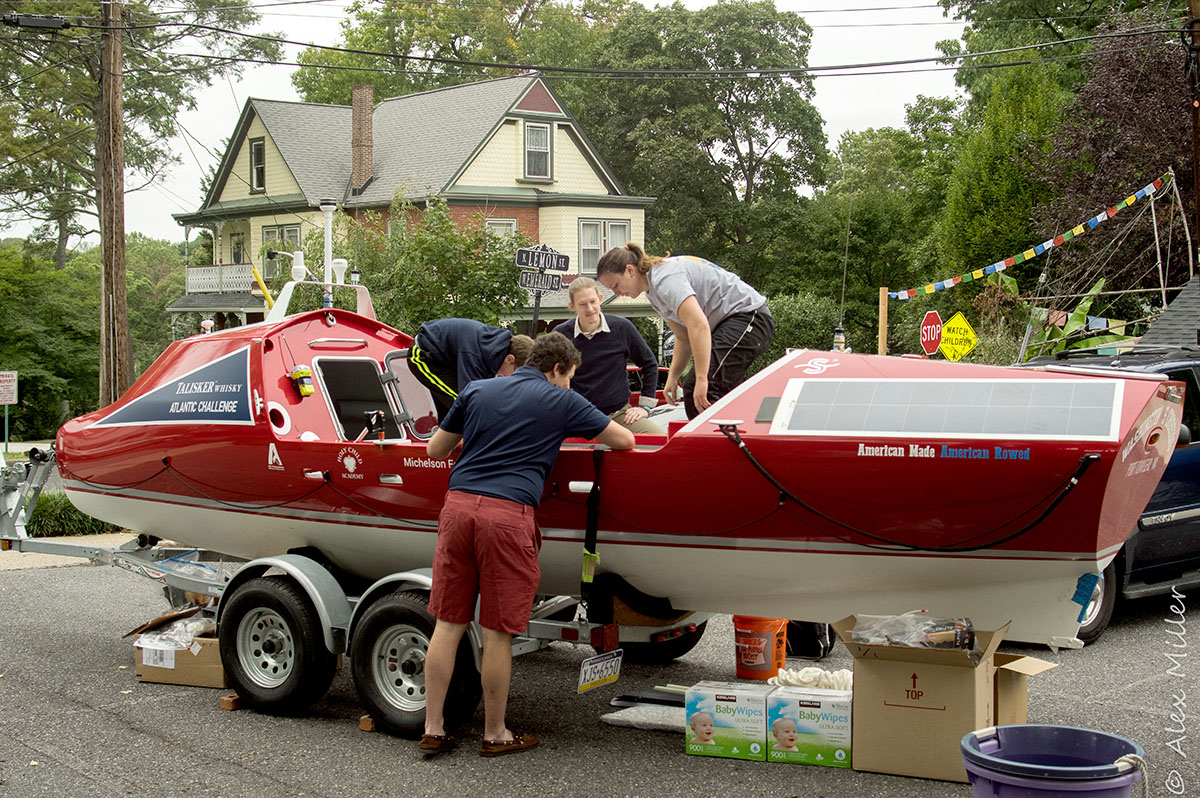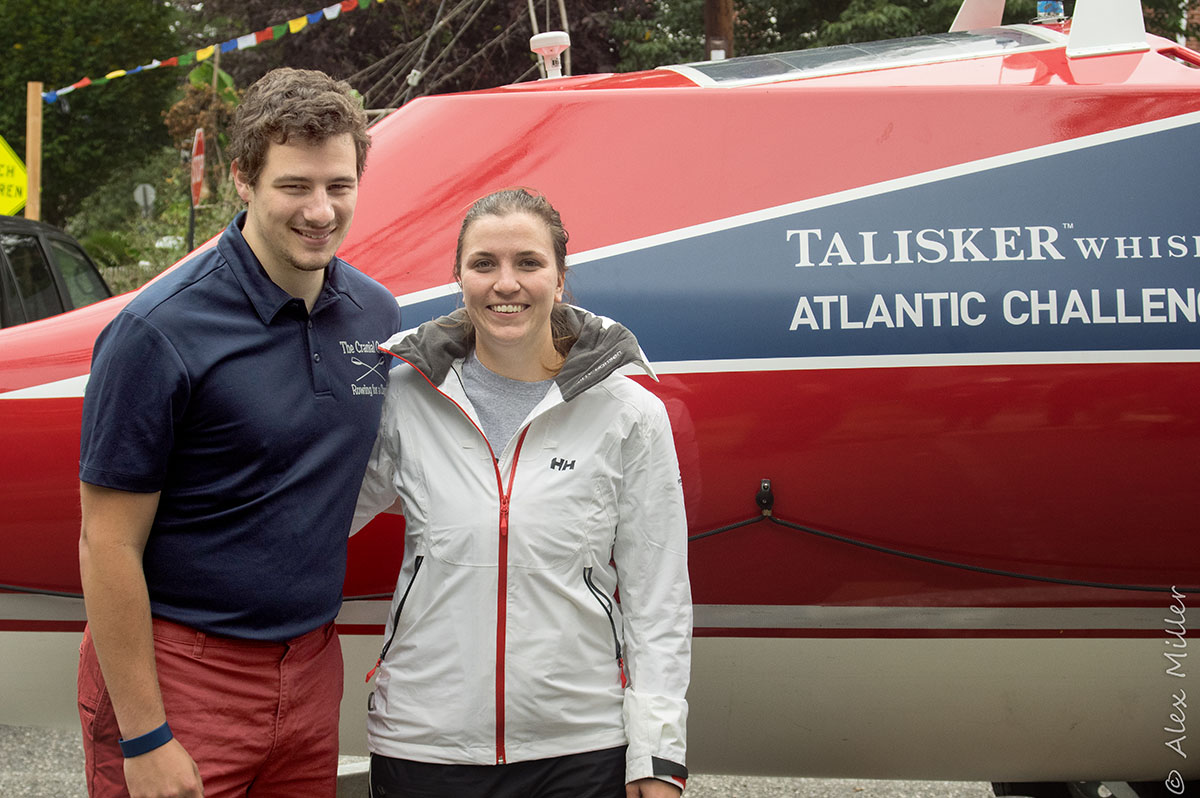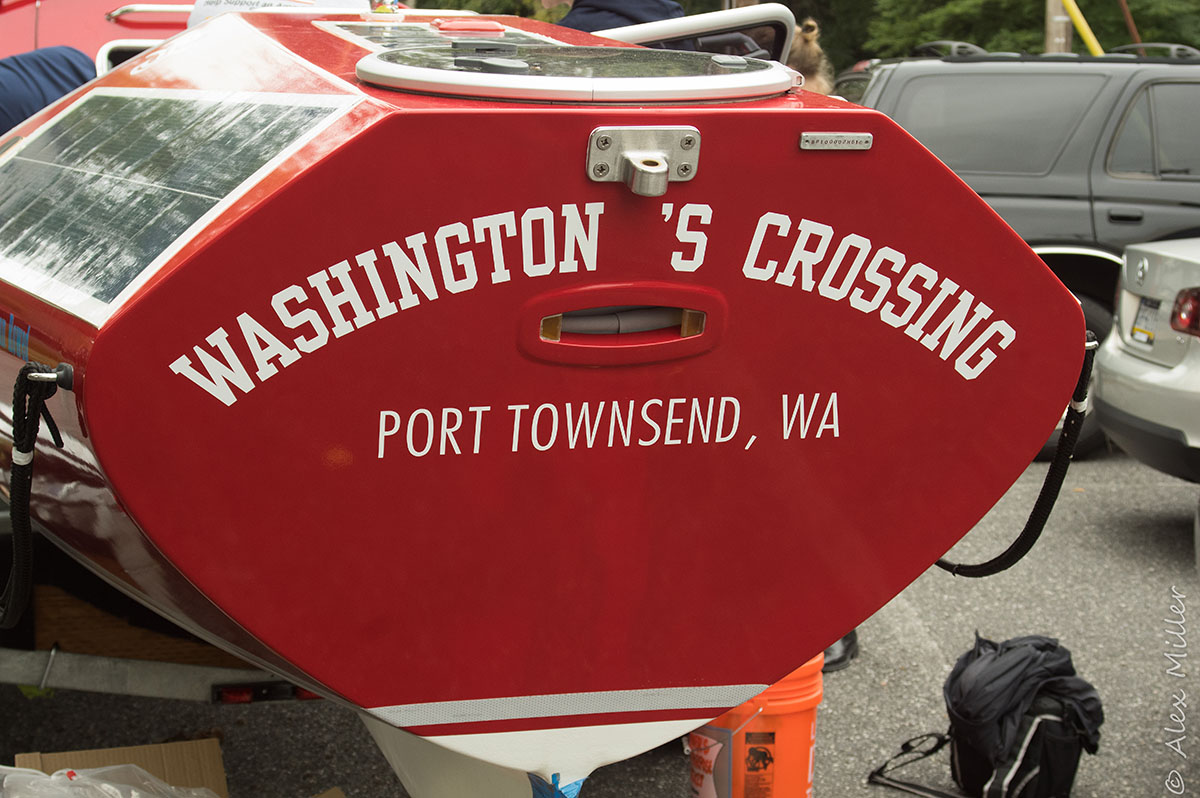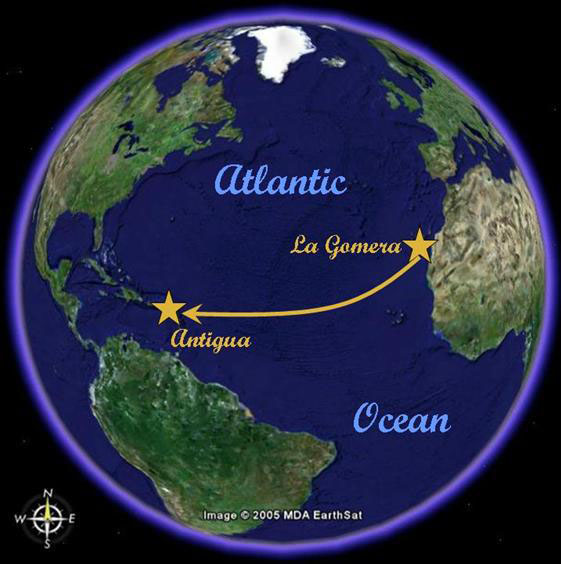 ,
,  ,
,  ,
, 
A Luverne High School graduate is training for the physically demanding “Talisker Whiskey Atlantic Challenge,” a 90-day, 3,000-mile journey across the Atlantic Ocean starting in December.
Caitlin Miller, Hardwick, and her race partner, George Pagano, Philadelphia, recently returned from the UK where they’ve been training for the trip across the world’s second-largest ocean.
“George and I watched a documentary about four guys from the UK who did the race to raise money for spinal research,” Miller said.
“It's an awesome video and we thought it would be a great way to have a rowing adventure while also giving back.”
Team “Cranial Quest,” as they’re called, is raising money for the ALS Foundation, in memory of Pagano’s grandfather who died from ALS when Pagano was 10.
Miller, a 2010 Luverne High School graduate and daughter of Alex and Karen Miller, Hardwick, rowed for three years on the club team at the University of Nebraska, Lincoln, where she recently earned her degree in environmental restoration.
She and Pagano, a former Nebraska rowing teammate, have spent the past several months working to meet the entry requirements for the Atlantic Challenge.
For example, each competitor must hold a valid RYA Yacht-master Ocean Theory, First Aid at Sea, Sea Survival and a VHF Radio License.
“The race is dangerous but less dangerous than doing an independent row,” Miller said. “The organizers’ main priority is to keep us safe. That's why we have to do the training classes. They also have a duty officer on call 24/7 during the race who tracks us from shore, sends us weather updates, and makes sure we have all the equipment we need before we leave.”
The two will sleep in two-hour shifts, one rowing while the other sleeps.
All the boats are equipped with water makers, which change seawater into drinking water, and solar panels, which power GPS and other electrical equipment for communication with land.
The boats are approximately 7.5 meters long and 1.8 meters wide built of wood, Fiberglas, carbon fiber and Kevlar. Small cabins provide some protection from the ocean and sun. All the vessels are built to self-right in the event that they capsize.
“Our boat is a specially made ocean rowing boat that was built in Port Townsend, Washington,” Miller said. “It is the first ever American made boat to be entered in the race. We are hoping to be the first Americans to win the race.”
The $100,000 vessel was named “Washington’s Crossing.”
Rowers need to pack 90 days’ worth of rations, first aid kits, and safety equipment for the entire crossing. As the rules state — if they run out of rations and have to ask for extras, they will be disqualified.
As the Atlantic Challenge website states, “Once they leave the safety of the harbor, they’ll be on their own on the vast ocean and at the mercy of the elements until the race comes into its final stretch.”
The Talisker Whiskey Atlantic Challenge has been dubbed “the world’s toughest row,” because competitors must endure blisters, salt rash, possible sharks and sleep deprivation to make the trip.
Essentially, it attracts the same class of adventure seekers as Mt. Everest climbers, due to the physical and mental demands of the event.
Alex Miller said he’s not surprised about his daughter’s venture across the ocean.
“She was always the one pushing to do more,” he said. “Whether we were in the Big Horns or the Boundary Waters.”
He admitted he felt better once he learned his daughter’s boat has passed the self-righting test.
On Dec. 15 they’ll begin the challenge at San Sebastian in LaGomera in Spain’s Canary Island chain just off the coast of Africa.
They’ll return — if all goes well — 40 to 90 days later to Nelson’s Dockyard English Harbor in the southern coast of Antigua.
The Cranial Quest’s official sponsor is the Philadelphia Urban Affairs Coalition, but both Miller and Pagano have been working to secure other corporate sponsors, in addition to raising money for ALS.
To support their cause, visit http://www.thecranialquest.com, which offers a link to track the team as it crosses the Atlantic.


